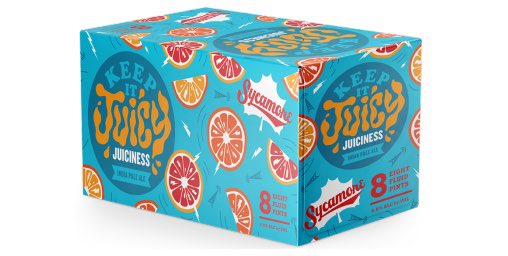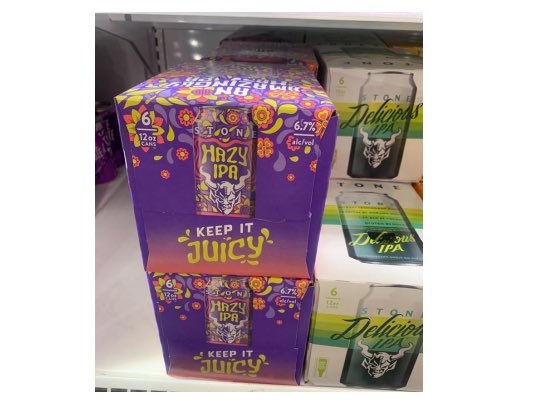The importance of TM registration for small craft brewers
- Alexis Hartwell-Gobeske

- Apr 29, 2022
- 2 min read
Last week, the U.S. District Court for the Western District of North Carolina issued a preliminary injunction against Stone Brewing, preventing it from using the phrase “keep it juicy” on packaging for its Hazy IPA. The interim order was the result of a copyright infringement lawsuit brought by Sycamore Brewing LLC a craft brewery out of North Carolina which claimed that Stone Brewing copied its “keep it juicy” slogan and that it created a significant likelihood of confusion U.S. District Judge Frank D. Whitney determined that Sycamore had shown a likelihood of success on the merits of its claim, and as such issued the preliminary injunction. Sycamore’s “keep it juicy” mark is a valid and registered trademark, which is distinctive in the craft beer space. As such, the mark can be enforced.
Trademark registration is generally a prerequisite to enforcing a mark in an infringement action. Registration is especially important for craft breweries that have a limited distribution range because of the difficulty in establishing prior use and the limitations inherent in that mechanism. The strongest mechanism of defense against a confusingly similar mark, if prior attempts to settle are unsuccessful, is the trademark infringement claim. In the Sycamore Brewing case, a smaller craft brewery was able to prohibit a larger craft brewery with a much wider distribution model from utilizing its mark, not only within the areas where Sycamore distributes its products but throughout the nation.
Unregistered marks are still protectable to a degree, through statute and common law. 15 U.S.C. § 1125(a) creates a civil cause of action for claims of false designation of origin and false description. However, the burden of proof is on the claimant to establish the following elements: (1) that it possesses a mark; (2) that the defendant used the mark; (3) that the defendant's use of the mark occurred in commerce; and (4) that the defendant used the mark in a manner likely to confuse consumers. Proving the first element may prove challenging without registration because registration provides the benefit of a presumption of ownership; unregistered marks must prove ownership of a mark through evidence of prior use in commerce. Further, even a successful claim of false designation will likely only limit the similar mark’s use within the geographic area where the prior use occurred.
Additionally, unregistered marks are afforded state-level protection through the state-level unfair competition laws and common law protections, but these protections are limited to uses within the state. A small craft brewery with future plans to expand distribution out of state will not benefit from limiting its protection to such geographical bounds. Washington State has not adopted the Uniform Deceptive Trade Practices Act, which is the statutory framework for most state-level unfair competition claims, but Washington state has codified its own statutory Unfair Business Practices Act at RCW 19.86, which affords civil penalties for unfair competition.
Although unregistered marks are afforded a modicum of protection, there are numerous advantages to registering a trademark with the USPTO. These advantages include the right to bring an infringement lawsuit against an infringer in federal court, incontestable status after five years of registration, presumption of ownership, enhanced remedies, and constructive notice of ownership to others around the nation. The benefits of registering identifying marks far outweigh the costs associated with registration.







Comments